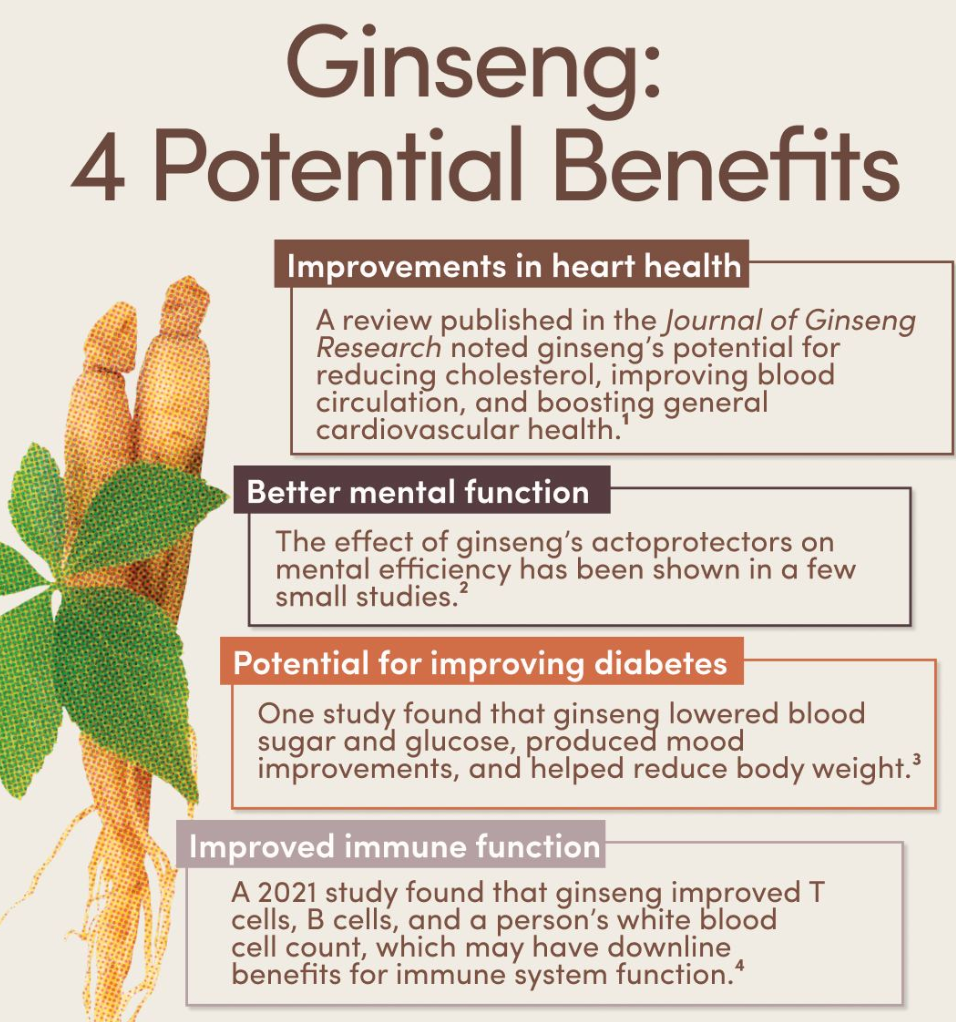Introduction
Korean red ginseng (Panax ginseng), long prized in traditional East Asian medicine, is gaining renewed scientific attention in 2025. Recent studies are uncovering more precise mechanisms and broader health effects, from lipid regulation to immune modulation, metabolic benefits, and improved quality of life. In this article, we’ll explore the most up-to-date research findings, practical uses, safety considerations, and tips for incorporating red ginseng into daily life.
(This article is written for SEO: keyphrase “Korean red ginseng benefits” is heavily integrated.)
Emerging Research Highlights
- Cholesterol & Lipid Metabolism A 2025 study in Scientific Reports shows that Korean red ginseng (KRG) can significantly reduce total cholesterol, triglycerides (TG), and low-density lipoprotein cholesterol (LDL-C) in hyperlipidemic animal models. Nature
Mechanistically, KRG appears to modulate the SREBP2 / PCSK9 / LDLR pathway in the liver—suppressing PCSK9 while upregulating LDL receptor (LDLR) expression. Nature
This suggests red ginseng could be a natural adjunct or complement to conventional lipid-lowering therapies. - Blood Sugar Control & Prediabetes A randomized, double-blind, placebo-controlled trial in Korea (2025) evaluated red ginseng extract powder (KGC05pg) in prediabetic adults over 12 weeks. News-Medical
Findings included:- Significant reductions in fasting blood glucose, improvements in oral glucose tolerance
- Lower HbA1c levels
- Improved insulin sensitivity & beneficial changes in hormonal mediators (e.g. adiponectin, GLP-1)
- A time-dependent reduction in DPP-4 (an enzyme implicated in glucose metabolism) without serious adverse effects. News-Medical
- Stress, Fatigue, and Quality of Life Recent work (2025) confirms that red ginseng helps reduce symptoms of fatigue, improves energy levels, and supports better stress resilience. ScienceDirect+2Thorne+2
In particular, clinical trials using specific root-powder formulations showed notable reductions in fatigue severity scale (FSS) scores. ScienceDirect - Immune Function & Beyond According to a recent review (2025), ginseng’s polysaccharides and specific ginsenosides (e.g. CK) contribute to immune modulation. Xia & He Publishing
In experiments with irradiated animals, ginseng helped white blood cell counts recover faster; in human sub-health studies, improvements were seen in fatigue, mood (especially feelings of sadness), and cognitive symptoms. Xia & He Publishing
Mechanisms: How Korean Red Ginseng Works
- Ginsenosides: Diverse saponin compounds that have antioxidant, anti-inflammatory, and regulatory effects on metabolic and immune pathways.
- Modulation of PCSK9 & LDLR: Helps reduce “bad cholesterol” by promoting LDL receptor activity and reducing its degradation. Nature
- Hormonal & Enzyme Effects: Impacting insulin, GLP-1, adiponectin, and DPP-4 among others to favor better glucose handling. News-Medical
- Adaptogenic and Anti-fatigue Activity: Improves mitochondrial function, reduces oxidative stress and supports stress response networks.
Practical Uses & Dosage Guidance
- Formulas: Extracts, powders, capsules, teas, and even functional beverages are available. Standardization (e.g., amount of ginsenosides) matters.
- Dosage: In clinical trials for glycemic control, 500 mg twice daily of red ginseng extract powder was used. News-Medical
- Duration: Many studies are 8-12 weeks in duration; longer-term data is still needed.
- Safety:
- Generally well tolerated in the short to moderate term.
- Potential interactions with medications (especially those affecting blood sugar or blood clotting) should be considered.
- Not recommended for pregnant or breastfeeding women unless under medical advice.
- Monitor for mild side effects (insomnia, mild GI symptoms).
SEO-Focused Summary of Benefits
- Improves cholesterol profiles and reduces LDL/total cholesterol via PCSK9/LDLR pathway
- Enhances blood sugar control in prediabetics; may delay or prevent onset of type 2 diabetes
- Reduces fatigue & stress; improves energy levels and overall quality of life
- Modulates immune system; helps in faster recovery and better resilience
- Acts as adaptogen with antioxidant and anti-inflammatory effects
Conclusion
Korean red ginseng benefits are now being substantiated by modern clinical research. From lipid lowering and blood sugar regulation to immune and fatigue recovery, recent studies offer strong evidence for its therapeutic potential. As always, quality, dose, and duration are critical, and anyone considering using red ginseng for medical reasons should consult a health professional.

